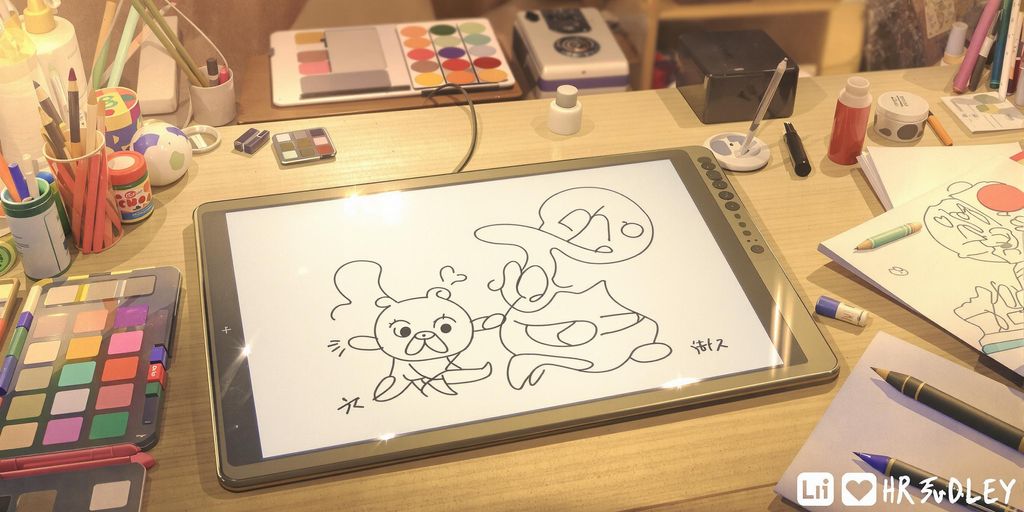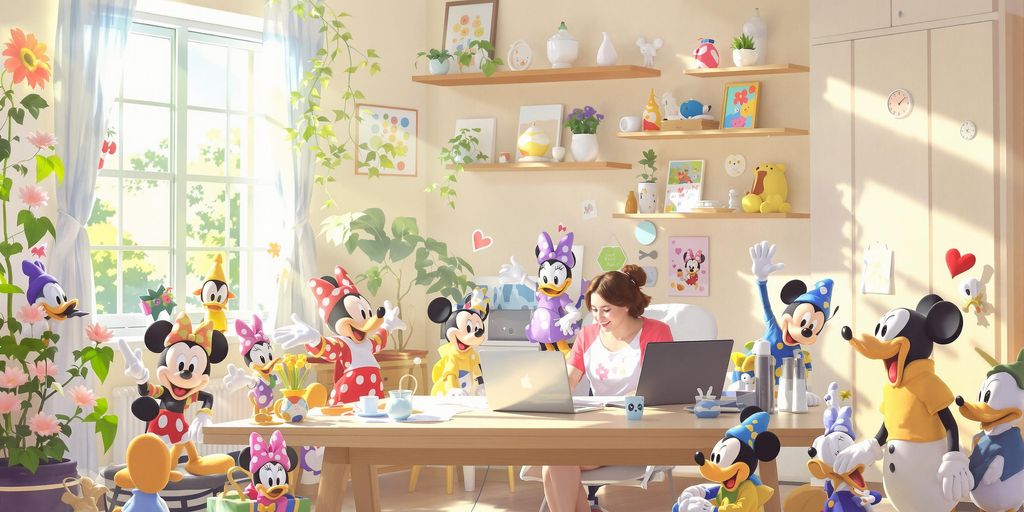When applying for jobs, you might come across job postings that say cover letters are optional. This can leave you wondering whether you should put in the effort to write one. In this article, we’ll explore the role of cover letters, the arguments for and against them, and how they can impact your job application. By the end, you should have a clearer idea of whether to include a cover letter in your next job application.
Prefer to listen? Check out the audio version below
Key Takeaways
Understanding The Purpose Of Cover Letters
What Is A Cover Letter?
Okay, so what even is a cover letter? Think of it as your introduction to a potential employer. It’s a document you send with your resume that gives you a chance to show off your personality and explain why you’re a good fit for the job. It’s more personal than a resume, which is mostly just facts and figures.
Why Are Cover Letters Important?
Why bother with a cover letter at all? Well, they can actually be pretty important. They let you:
Basically, it’s your chance to make a good first impression and convince the hiring manager that you’re worth interviewing.
How Do Cover Letters Complement Resumes?
Resumes and cover letters work together, but they do different things. Your resume is like a summary of your work history and skills. A cover letter, on the other hand, lets you:
Think of it this way: your resume gets you in the door, but your cover letter seals the deal.
The Debate Over Optional Cover Letters
Common Arguments Against Cover Letters
Okay, so a lot of people think cover letters are, like, totally outdated. The main thing you hear is that recruiters just don’t read them. They’re too busy, or they have applicant tracking systems that scan resumes for keywords, making a personalized letter seem pointless. Some argue that if your resume is strong enough, it should speak for itself. Plus, writing a good cover letter takes time, and when you’re applying for tons of jobs, that time adds up fast. It’s a fair point – is it really worth the effort if it’s just going to end up in the digital trash?
Reasons To Consider Writing One Anyway
Even though some say cover letters are dead, there are still good reasons to write one. A cover letter lets you show off your personality and enthusiasm in a way a resume can’t. It’s your chance to tell a story, explain why you’re really interested in the job, and connect your skills to the company’s mission. Plus, if you have any gaps in your resume or are switching careers, a cover letter can help explain those things. It shows you’re willing to go the extra mile, which can make you stand out from other candidates. Here are some other reasons:
Industry Perspectives On Cover Letters
Different industries have different views on cover letters. In some fields, like academia or journalism, they’re still pretty much expected. In others, like tech, they might be seen as less important. It really depends on the company culture and what they’re looking for. Some recruiters might skim them, while others read them carefully to get a sense of who you are. It’s a good idea to do some research on the specific industry and company you’re applying to, to get a feel for their expectations. You can check out their website, LinkedIn, or even ask someone who works there. Knowing the industry perspective can help you decide if writing a cover letter is worth your time and effort, and if a cover letter can enhance your job application.
When To Write A Cover Letter
Assessing Job Descriptions
Job descriptions can be pretty telling. Sometimes, they practically scream for a cover letter, even if it’s technically optional. Look closely at the language used. If the description emphasizes things like ‘communication skills,’ ‘storytelling,’ or ‘demonstrated passion,’ that’s a good sign a cover letter could really help you stand out. On the other hand, if it’s all about hard skills and specific certifications, maybe not so much. Also, consider:
Understanding Company Culture
Company culture matters, and a cover letter can be a way to show you get it. Do some digging beyond the job description. Check out the company’s website, social media, and even employee reviews. What kind of vibe do you get? Is it a place that values individuality and creativity, or is it more about following established processes? A cover letter lets you tailor your application to fit that culture. For example:
Evaluating Your Experience
Sometimes, a cover letter is less about what the company wants and more about what you need to explain. If you have gaps in your work history, a career change, or other unusual circumstances, a cover letter can be your chance to address them head-on. Don’t try to hide anything; be honest and explain your situation in a positive light. Consider these scenarios:
How A Cover Letter Can Enhance Your Application
Personalizing Your Application
Let’s be real, a resume can feel pretty generic. It’s a list of your skills and experience, but it doesn’t really show you. That’s where a cover letter comes in. It gives you a chance to inject some personality into your application. You can talk directly to the hiring manager, show that you’ve actually researched the company, and explain why you, specifically, are a good fit. It’s about making a connection beyond just the bullet points.
Highlighting Key Skills
Your resume is already highlighting your skills, right? Sure, but a cover letter lets you go deeper. Instead of just listing skills, you can tell a story about how you used them. Give examples. Show the impact you made. It’s about proving you have the skills, not just saying you do. Think of it as adding color to a black-and-white picture. For example:
Demonstrating Enthusiasm
Okay, so you’ve got the skills and the experience. But do you actually want the job? A cover letter is the perfect place to show your enthusiasm. It’s your chance to express genuine interest in the company and the role. Don’t just say you’re excited; explain why. What is it about the company’s mission, values, or projects that resonates with you? Showing that you’re truly invested can make a big difference. Here’s how to do it:
Crafting An Effective Cover Letter
Key Components Of A Strong Cover Letter
So, you’re going to write a cover letter? Great! Let’s break down what makes a cover letter actually good. It’s not just about filling space; it’s about making an impression. A strong cover letter usually includes:
Tips For Tailoring Your Letter
Tailoring your cover letter is super important. It shows you’re not just sending out the same generic letter to every company. Here’s how to do it:
Common Mistakes To Avoid
Okay, let’s talk about what not to do. Cover letters can be tricky, and it’s easy to make mistakes that hurt your chances. Here are some common pitfalls:
The Impact Of A Cover Letter On Hiring Decisions
Statistics On Cover Letter Influence
It’s tough to put an exact number on how much a cover letter sways a hiring manager, but studies have shown they definitely have an impact. Some surveys suggest that a significant percentage of recruiters consider cover letters important, especially when assessing candidates with similar qualifications. A well-written cover letter can be the tie-breaker. However, the influence can vary greatly depending on the industry, company size, and the specific role.
Recruiter Insights On Reading Cover Letters
Recruiters have different approaches when it comes to cover letters. Some skim them quickly to get a sense of the candidate’s communication skills and enthusiasm. Others read them more closely, looking for specific examples of how the candidate’s experience aligns with the job requirements. Here are some things recruiters look for:
It’s also worth noting that some recruiters might not read every cover letter, especially if they’re dealing with a high volume of applications. So, making a strong first impression is key.
Case Studies Of Successful Applications
There are plenty of stories out there about candidates who landed their dream jobs thanks to a killer cover letter. These case studies often highlight how the cover letter:
For example, a candidate applying for a marketing position might use their cover letter to describe a successful campaign they ran, quantifying the results and explaining how their approach aligns with the company’s marketing strategy. These real-world examples successful applications show the potential impact of a well-crafted cover letter.
Alternatives To Traditional Cover Letters
Using Email As A Cover Letter
Sometimes, a formal cover letter feels a bit much. You know? Like sending a telegram when a text would do. That’s where using your email itself as a cover letter comes in. Keep it concise, direct, and professional. Think of it as a mini-cover letter right in the body of your email.
It’s a faster, more modern approach that can work well, especially for smaller companies or more informal industries. Just make sure your email is well-written and free of errors. You still want to make a good impression, even if it’s not a traditional cover letter.
Video Cover Letters
Okay, so you’re not into writing? How about talking? Video cover letters are becoming more popular, especially in creative fields. It’s a chance to show off your personality and communication skills in a way that a written letter just can’t.
It can feel a little awkward at first, but with a bit of practice, you can create a video that really stands out. Just remember to keep it professional and focus on why you’re the right person for the job. It’s a great way to show your enthusiasm and make a memorable first impression.
Portfolio Submissions
For some jobs, especially in creative or technical fields, a portfolio can speak louder than any cover letter. If you’re a designer, writer, photographer, or developer, your work is the best way to show what you can do.
In these cases, a traditional cover letter might feel redundant. Instead, focus on creating a compelling portfolio that demonstrates your skills and experience. A well-crafted portfolio shows your key skills in action.
Addressing Concerns About Cover Letters
Do Recruiters Really Read Cover Letters?
It’s a valid question. Some people think cover letters are a waste of time because recruiters don’t even read them. While it’s true that not every recruiter reads every cover letter, many do. It often depends on the company, the role, and the sheer volume of applications they receive.
Overcoming The ‘Waste Of Time’ Argument
If writing a cover letter feels like a chore, it’s easy to see it as a waste of time. However, think of it as an opportunity to stand out. Instead of viewing it as a mandatory task, consider it a chance to:
Even if it only slightly increases your chances, that extra effort could be the deciding factor.
Balancing Time And Effort
Time is precious, especially during a job search. You don’t want to spend hours crafting a cover letter for every application. Here’s how to strike a balance:
Remember, a cover letter is just one piece of the puzzle. Make sure your resume is polished and your online presence reflects your professional brand.
The Future Of Cover Letters In Job Applications
Trends In Hiring Practices
Hiring is always changing, and it’s interesting to see where cover letters fit in. Some companies are moving away from them, focusing more on skills-based assessments or portfolio submissions. Others still value them as a way to gauge a candidate’s communication skills and enthusiasm. It really depends on the industry, the company size, and even the specific role. For example, creative fields might lean towards portfolios, while more traditional sectors might still expect a cover letter. It’s a mixed bag, and it’s important to stay updated on what employers in your field prefer.
The Role Of Technology
Technology is changing everything, including how we apply for jobs. AI-powered tools are being used to screen resumes and cover letters, looking for keywords and specific qualifications. This means your cover letter needs to be optimized for these systems. However, it also means there’s an opportunity to use technology to your advantage. You can use AI to help you write a better cover letter, tailoring it to the specific job description. Just be careful not to sound too generic or robotic – you still want your personality to shine through. Also, video cover letters are becoming more popular, offering a more engaging way to introduce yourself. It’s all about finding the right balance between using technology and staying authentic.
Evolving Expectations From Employers
What employers want from a cover letter is also changing. They’re less interested in generic summaries of your resume and more interested in seeing how you can solve their specific problems. They want to know you’ve done your research and understand their company culture. So, what should you focus on?
Basically, employers want to see that you’re not just looking for any job, but that you’re genuinely interested in their job and that you have something unique to offer. Even though some think cover letters are outdated, they can still be a great way to show your enthusiasm.
As we look ahead, cover letters are changing. Many companies now prefer short, clear messages that show your skills and fit for the job. This means you might not need a long cover letter anymore. Instead, focus on making a strong first impression with your resume and a brief note. Want to learn more about how to stand out in your job applications? Visit our website for tips and tools to help you succeed!
Final Thoughts on Optional Cover Letters
So, should you write a cover letter if it’s not required? The short answer is yes. Even if it’s optional, a cover letter can help you stand out. It’s your chance to show a bit of your personality and explain why you’re a good fit for the job. Think of it as a way to connect the dots between your resume and the job description. Sure, it takes extra time, but it could make a difference in how you’re perceived by hiring managers. In the end, it’s about making the best impression possible, and a well-crafted cover letter can help you do just that.
Frequently Asked Questions
Should I write a cover letter if it’s optional?
Yes, writing a cover letter can still help you stand out, even if it’s not required.
What should I include in my cover letter?
You should include your interest in the job, relevant skills, and why you want to work for the company.
How long should a cover letter be?
A cover letter should usually be one page long.
Can I use a cover letter for different jobs?
You can, but it’s better to customize it for each job to make it more relevant.
Do employers really read cover letters?
Many employers do read cover letters, especially if they want to know more about you.
What if I don’t have much experience?
You can still write a cover letter highlighting your skills, education, and enthusiasm for the job.
Is it okay to submit a cover letter by email?
Yes, you can use the email body as your cover letter or attach it as a document.
What are common mistakes to avoid in a cover letter?
Avoid typos, being too formal, or repeating your resume without adding new information.


















